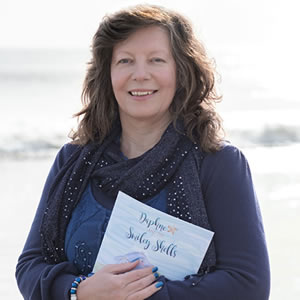How Setting Boundaries and NLP Bring Confidence and Compassion to our Lives
 Many years ago I was a busy Mum, juggling school runs, after school activities and home life with part time work and ambitions to help make the whole world a better place. I was learning to teach, learning to do marketing work for my husband’s business, achieving things I had never done before, I “had it all”. Good income, nice house, car, solid marriage, two lovely children and a purpose in life.
Many years ago I was a busy Mum, juggling school runs, after school activities and home life with part time work and ambitions to help make the whole world a better place. I was learning to teach, learning to do marketing work for my husband’s business, achieving things I had never done before, I “had it all”. Good income, nice house, car, solid marriage, two lovely children and a purpose in life.
Trouble was, despite outward appearances, things weren’t going so well in my internal world. Overstretched with work and feeling vulnerable, I would notice every time my children complained about the dinner I had cooked or refused to leave the computer to eat, every time my husband came home from work grumpy and told me off for stacking the dishwasher wrong (a bone of contention in many households from what I hear!) and every time I didn’t get a compliment for what I had achieved either at home or at work. At times I would feel like there was a tiny “me” screaming inside, wanting to be recognised, cared for and nurtured by the people around me. I had set no “Boundaries” and so I couldn’t tell when others had crossed the line, I just accepted and resented their behaviour.
Did I say anything to my family? No. I felt I was being silly and selfish and that I was “not good enough”. Part of me didn’t know how to express my feelings, and part of me was afraid of hurting theirs. I knew what those around me did wrong, but not what I would like to be different. Things had to change. I had to change.
In NLP we have “Beliefs of Excellence “ that say “every behaviour has a positive intention” and that “people make the best choices available to them”. This means that even if someone appears to be acting negatively towards you, it may be because they either don’t know about other choices they could make, or don’t realise the affect they are having on you. In most cases, they are just trying to make sense of their own world and are not “out to get you”. I could have helped myself by recognising I had a right to my feelings, sharing how hurt I felt in a calm way, and coming up with a solution to suit both parties. I could have “re-framed” other’s behaviour so that I saw the positive intention within it. But first I needed to learn how.
So what happens if we know our own Boundaries and what we are prepared to accept in every situation? Brene Brown, phsychological researcher, speaker and author of “Rising Strong”, writes that she asks of herself “What boundaries need to be in place for me to stay in my integrity, and make the most generous assumptions about you?” and she advises “To assume the best about people is an inherently selfish act, because the life you change first is your own”.
Coming from that space of knowing our boundaries, we can make a confident choice about when it is appropriate to enforce these boundaries and when we will let something go. We can choose to view other’s behaviour as a positive intention and find out what that intention is, so that we can help them meet their needs, as we meet ours. We can also communicate our needs to others appropriately, and let them know when their behaviour is Ok or Not Ok immediately, calmly and confidently. And if our boundaries are seriously breached we can take positive steps to resolve, or remove ourselves from the situation before it escalates.
Once I realised that “Dishwasher-Gate” was “not Ok” for me, instead of walking away fuming, I chose to calmly deal with the situation and began to playfully reflect back my husband’s behaviour. This relieved the tension on my side and helped him to see how his words were not appreciated, but in a light-hearted way. He still occasionally coments where things are not stacked “right” but it passes me by easily now – I accept the comment as part of his greater eye for detail and brush it off, balancing this against the many ways he shows love, respect and support for me.
And the dinner/computer issue? I realised that my sons’ pride in being a team leader on an online game was more important than my need to have my cooking appreciated, and recognised his behaviour was not a deliberate dismissal of my efforts. As he was a hard worker, and well behaved in every other way, I chose to overlook this behaviour as a phase, and allow him to eat his dinner at the computer until the phase wore off – which it did in due course. I believe the experience he gained, working with others towards a goal in real time, helped his confidence and contributed to his current success in his working life.
And the “tiny me”? That’s a story for another time..
What boundaries need to be in place for you to stay in your integrity, while making the most generous assumptions about others? How can you find the positive intention within others behaviour and how will this change your life for the better?
If you need help with setting your boundaries or finding the positive intention in others, or any other issues, please contact me at vicki@vickitongeman.com, find me on Faceook, or visit here to find out more.

Vicki Tongeman
Vicki Tongeman is a Wife, Mother, Artist, Teacher, Author and Coach. She lives on the beautiful shores near the New Forest and loves walking and being mindful on the beach and in nature. Her friends call her the “Magic Mermaid” as she combines life changing coaching techniques with a sprinkle of Mermaid Magic!
As an NLP Practitioner and personal coach Vicki is passionate about helping people develop their inner self confidence and achieve their goals.


0 Comments